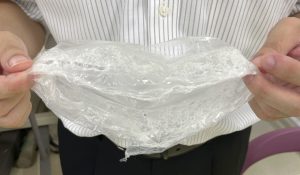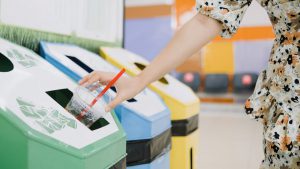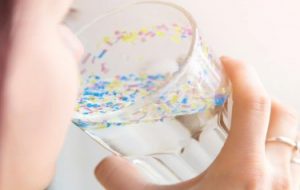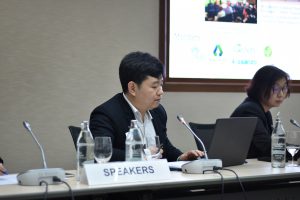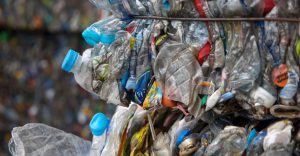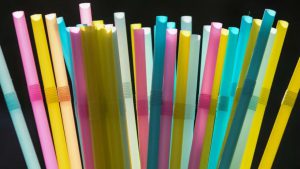The company Bioinicia and the Spanish National Research Council (CSIC) have launched the Bio Hygienic Mask with EPI-type fit, the world’s first natural compostable nanofiber mask, which has a filtration of over 98% against aerosols and compost in twenty-two days.
It is “the most sustainable option to avoid the accumulation of masks in the environment & rdquor ;, points out a note from the promoters, which adds that the most respectful thing“ is to produce them using raw materials derived from biomass and / or waste and their subsequent organic recycling in the form of industrial composting, so that the carbon returns to the earth & rdquor ;.
“The mask has posed a new risk for our planet. A simple gesture such as removing the mask and getting rid of it can be a great damage to the environment. Throwing the masks in the toilet or on the floor, and not doing it in the recommended places, is a serious problem, since it causes the same damage as throwing wipes and plastics. For this reason, Bioinicia has developed the Bio Hygienic Mask with EPI & rdquor; fit, he points out.
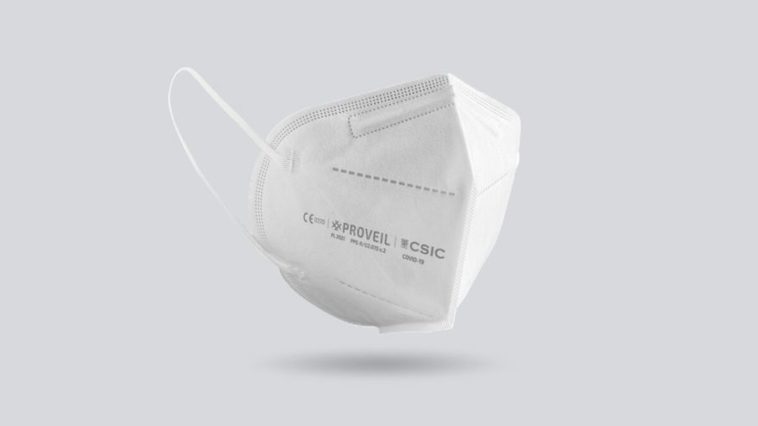
Its components will be transformed into water and CO2 over time, preventing millions of tons of plastics from reaching the oceans. In addition, the entire range of PROVEIL® EPI masks have 30% less plastics in their composition, which from the beginning was a commitment of the company to the environment.
José María Lagarón, CSIC researcher and leader of the group of researchers that has developed the PROVEIL® nanofiber filter together with Bioinicia, believes that “at this moment almost all masks are made of a plastic derived from petroleum that does not biodegrade.
Therefore, it will be for hundreds of years as a pollutant in the environment and also, as it is broken up into small pieces, it will generate microplastics that are consumed by living organisms and that, as a consequence, will end up forming part of our diet & rdquor ;.
1.5 billion masks to the sea in 2020
“It is considered that the year 2020 ended with some 1,500 million masks in the sea, generating a new type of garbage in the ocean. An additional problem to the accumulation of masks in the environment and in landfills is that this product is based on a linear economy, disposable, not circular. In addition, the production of plastic adds carbon dioxide to the atmosphere, thus being a promoter of the greenhouse effect & rdquor ;, explains the scientist.
The figures are astronomical: Throughout 2020, 52,000 million masks have been manufactured, which represents an extra pollution of more than 5,000 additional tons of plastic.
One of the surgical models can contain 3-4 grams of polypropylene. These protective items can be difficult to recycle due to the risk of contamination and infection. On many occasions they end up in the oceans, due to an inadequate, non-existent or totally saturated waste management system.
“The 1.560 million face masks thrown into the oceans in 2020 will only be the tip of the iceberg,” said the director of the organization OceansAsia, Phelps Bondaroff, who recalled: “They are only a small fraction of the approximately 8 to 12 millions of metric tons of plastic entering our oceans each year. ‘
The problem, as Gary Stockes, director of the same entity, recalls, is that “the concern for hygiene and a greater dependence on take-out food have led to increased use of plastics, in particular plastic packaging.

